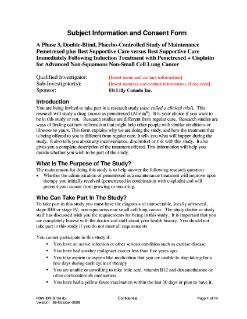This article needs additional citations for verification .(February 2014) (Learn how and when to remove this template message) |
A Site Management Organization (SMO) is an organization that provides clinical trial related services to a contract research organization (CRO), a pharmaceutical company, a biotechnology company, a medical device company or a clinical site. The site is usually a hospital or a similar health care institution that has adequate infrastructure and staff to meet the requirements of the clinical trial protocol. The scope of an SMO's responsibility is limited to the 'site' and hence the eponymous title. Some (but not all) of the responsibilities include:
Clinical trials are experiments or observations done in clinical research. Such prospective biomedical or behavioral research studies on human participants are designed to answer specific questions about biomedical or behavioral interventions, including new treatments and known interventions that warrant further study and comparison. Clinical trials generate data on safety and efficacy. They are conducted only after they have received health authority/ethics committee approval in the country where approval of the therapy is sought. These authorities are responsible for vetting the risk/benefit ratio of the trial – their approval does not mean that the therapy is 'safe' or effective, only that the trial may be conducted.
A contract research organization (CRO) is a company that provides support to the pharmaceutical, biotechnology, and medical device industries in the form of research services outsourced on a contract basis. A CRO may provide such services as biopharmaceutical development, biologic assay development, commercialization, preclinical research, clinical research, clinical trials management, and pharmacovigilance. CROs are designed to reduce costs for companies developing new medicines and drugs in niche markets. They aim to simplify entry into drug markets, and simplify development, as the need for large pharmaceutical companies to do everything ‘in house’ is now redundant. CROs also support foundations, research institutions, and universities, in addition to governmental organizations.

Biotechnology is the broad area of biology involving living systems and organisms to develop or make products, or "any technological application that uses biological systems, living organisms, or derivatives thereof, to make or modify products or processes for specific use". Depending on the tools and applications, it often overlaps with the (related) fields of molecular biology, bio-engineering, biomedical engineering, biomanufacturing, molecular engineering, etc.
- Contract
- Submission for Institutional Review Board or Independent Ethics Committee (IRB/IEC) approval. In Europe, submission to Ethics Committee is often done by sponsor or by CRO, i.e. not by SMO
- Patient Counseling
- Patient Recruitment
- Patient Follow-up
- Informed consent form (ICF) translation into vernacular languages[ dubious ] . In Europe, this is often done by the Sponsor or CRO
- Site initiation and trial close-out operations
- Trial-related documents archival and maintenance
- Reporting serious adverse events to the Sponsor or CRO and the IRB/IEC
- Ensuring protocol compliance
- Advising & alerting investigators of potential protocol violations
- Advising & alerting investigators of potential ICH-GCP violations

Informed consent is a process for getting permission before conducting a healthcare intervention on a person, or for disclosing personal information. A health care provider may ask a patient to consent to receive therapy before providing it, or a clinical researcher may ask a research participant before enrolling that person into a clinical trial. Informed consent is collected according to guidelines from the fields of medical ethics and research ethics.
A serious adverse event (SAE) in human drug trials is defined as any untoward medical occurrence that at any dose
- results in death,
- is life-threatening
- requires inpatient hospitalization or causes prolongation of existing hospitalization
- results in persistent or significant disability/incapacity,
- may have caused a congenital anomaly/birth defect, or
- requires intervention to prevent permanent impairment or damage.


